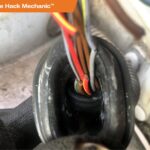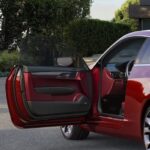When your car starts acting up, the check engine light flickers on, or strange noises emerge from under the hood, the first step towards resolution usually involves a visit to the car repair shop. Often, this visit begins with a car diagnostic test, and subsequently, a car diagnostic bill. But what does a car diagnostic bill actually mean, and how can you understand what you’re paying for? This guide will break down the intricacies of a car diagnostic bill, helping you navigate the often-confusing world of auto repair costs.
Understanding your car diagnostic bill is crucial for making informed decisions about your vehicle’s maintenance and repairs. It’s more than just a piece of paper with numbers; it’s a breakdown of the initial investigation into your car’s problems. Knowing what to look for and what questions to ask can save you money and ensure you’re getting honest and effective service.
Decoding Your Car Diagnostic Bill: What to Look For
A car diagnostic bill is typically issued after a mechanic performs tests to identify the source of your car’s issues. This bill isn’t for the repair itself, but for the time and technology used to pinpoint the problem. Here’s a breakdown of common components you might find on what does a car diagnostic bill:
Labor Charges for Diagnostic Services
The primary component of your car diagnostic bill will likely be labor charges. Mechanics invest in specialized tools and training to perform diagnostic tests. The labor cost covers the mechanic’s time spent:
- Connecting Diagnostic Tools: Modern cars are equipped with onboard computers. Mechanics use sophisticated scan tools to connect to these systems and retrieve error codes.
- Interpreting Diagnostic Codes: Error codes are just the starting point. A skilled mechanic needs to interpret these codes, which often requires technical knowledge and experience to understand what system or component is actually failing.
- Performing Further Tests: Sometimes, initial codes aren’t enough. The diagnostic process might involve further testing, like checking sensor readings, examining wiring, or even visual inspections of engine components.
- Pinpointing the Problem: The ultimate goal of the diagnostic process is to accurately identify the root cause of the issue. This can be time-consuming, especially with complex problems or intermittent faults.
Image: A mechanic uses a diagnostic tool to assess a car’s computer system, highlighting the technology involved in creating a car diagnostic bill.
Parts (Potentially) Included in the Diagnostic Bill
In some cases, a diagnostic procedure might necessitate the replacement of a minor, inexpensive part to properly complete the test. For example, a faulty sensor might need replacement to get accurate readings and confirm a diagnosis. If any parts are used during the diagnostic phase, they should be listed on what does a car diagnostic bill. However, generally, the diagnostic bill is primarily for labor and not for extensive part replacements.
Taxes and Fees
Like any service bill, your car diagnostic bill will likely include taxes and possibly shop fees. Be sure to review these to understand the final cost. If there are any fees you don’t recognize, don’t hesitate to ask for clarification.
Why is a Car Diagnostic Test Necessary?
You might wonder why you need to pay for a diagnostic test in the first place. Can’t the mechanic just look at the car and know what’s wrong? While experienced mechanics can often make educated guesses, modern vehicles are incredibly complex. A diagnostic test offers several key benefits:
- Accuracy: Diagnostic tests provide concrete data, going beyond guesswork. This accuracy is crucial for efficient and effective repairs.
- Efficiency: By pinpointing the exact problem, diagnostic tests save time in the long run. Mechanics can focus on the specific issue rather than blindly replacing parts.
- Cost-Effectiveness: While there’s an upfront cost for the diagnostic test, it can prevent unnecessary repairs. Accurate diagnosis means you’re less likely to pay for parts and labor that don’t actually fix the problem.
- Identifying Underlying Issues: Sometimes, the apparent symptom is just the tip of the iceberg. A diagnostic test can uncover deeper, related problems that might not be immediately obvious.
The Cost of a Car Diagnostic Test
The cost of a car diagnostic test can vary depending on several factors:
- Shop Rates: Labor rates differ between repair shops. Dealerships often have higher rates than independent shops.
- Complexity of the Problem: A simple issue might require less diagnostic time than a complex, intermittent problem.
- Type of Vehicle: Diagnostics on luxury or high-performance vehicles with advanced systems can sometimes be more expensive.
- Geographic Location: Labor costs vary regionally, influencing the overall diagnostic bill.
Before agreeing to a diagnostic test, always ask for an estimate of the cost. A reputable shop should be able to provide a reasonable range or a flat fee for a standard diagnostic service.
Reading Between the Lines of Your Car Diagnostic Bill
Once you receive what does a car diagnostic bill, take the time to review it carefully. Don’t be afraid to ask questions about anything you don’t understand. Here are some key things to consider:
- Itemized Breakdown: The bill should clearly itemize labor charges, parts (if any), and taxes/fees.
- Descriptions of Work Performed: Look for clear descriptions of the diagnostic steps taken. Vague descriptions are a red flag.
- Diagnostic Codes: The bill might list specific diagnostic trouble codes (DTCs). You can research these codes online to gain a better understanding of the potential issues. Websites like the National Institute for Automotive Service Excellence (ASE) or reputable auto parts retailers can be helpful resources.
- Next Steps: A good diagnostic bill should logically lead to a repair estimate. The diagnostic process is just the first step; the bill should clarify what repairs are recommended based on the findings.
Image: A customer reviews a car repair bill with a service advisor, emphasizing the importance of clear communication and understanding your car diagnostic bill.
Avoiding Unexpected Diagnostic Charges
To protect yourself from unexpected charges related to car diagnostics, consider these tips:
- Get a Written Estimate: Always request a written estimate for the diagnostic test before authorizing any work.
- Authorization for Diagnostics Only: Make sure you are only authorizing the diagnostic test at this stage, not any repairs. You should receive a separate estimate and authorization for repairs after the diagnostic is complete.
- Question “Free” Diagnostics: Be wary of “free diagnostic” offers. Sometimes, these are just a way to get you in the door and then pressure you into expensive repairs. Understand what the “free” service includes and if there are any strings attached.
- Second Opinion: If you feel unsure about the diagnosis or the recommended repairs after reviewing what does a car diagnostic bill, consider getting a second opinion from another reputable mechanic.
What if You Think You’ve Been Overcharged on a Diagnostic Bill?
If you believe you’ve been overcharged or that the diagnostic bill is unreasonable, here are steps you can take:
- Discuss with the Shop: Start by calmly discussing your concerns with the service advisor or shop manager. Explain why you feel the bill is too high and ask for a detailed explanation of the charges. Sometimes, a misunderstanding can be resolved through clear communication.
- Review Your Authorization: Check the authorization form you signed for the diagnostic test. Does the bill align with the estimated cost you were given?
- Get a Second Opinion (Again): Take your diagnostic bill to another shop and ask them to review it. They can offer an opinion on whether the charges seem reasonable for the services performed.
- File a Complaint: If you can’t resolve the issue directly with the shop, you can file a complaint with organizations like the Better Business Bureau or your state’s Attorney General’s office.
- Credit Card Dispute: If you paid by credit card, you have the right to dispute the charge with your credit card company, especially if you believe you were billed for services you didn’t authorize or that were not performed as described.
Empower Yourself with Knowledge
Understanding what does a car diagnostic bill is a key step in being a proactive and informed car owner. By knowing what to look for, asking the right questions, and understanding your rights, you can navigate the car repair process with confidence and ensure you’re paying fairly for necessary services. Remember, a clear and transparent diagnostic bill is the foundation for a trustworthy and effective car repair experience.


